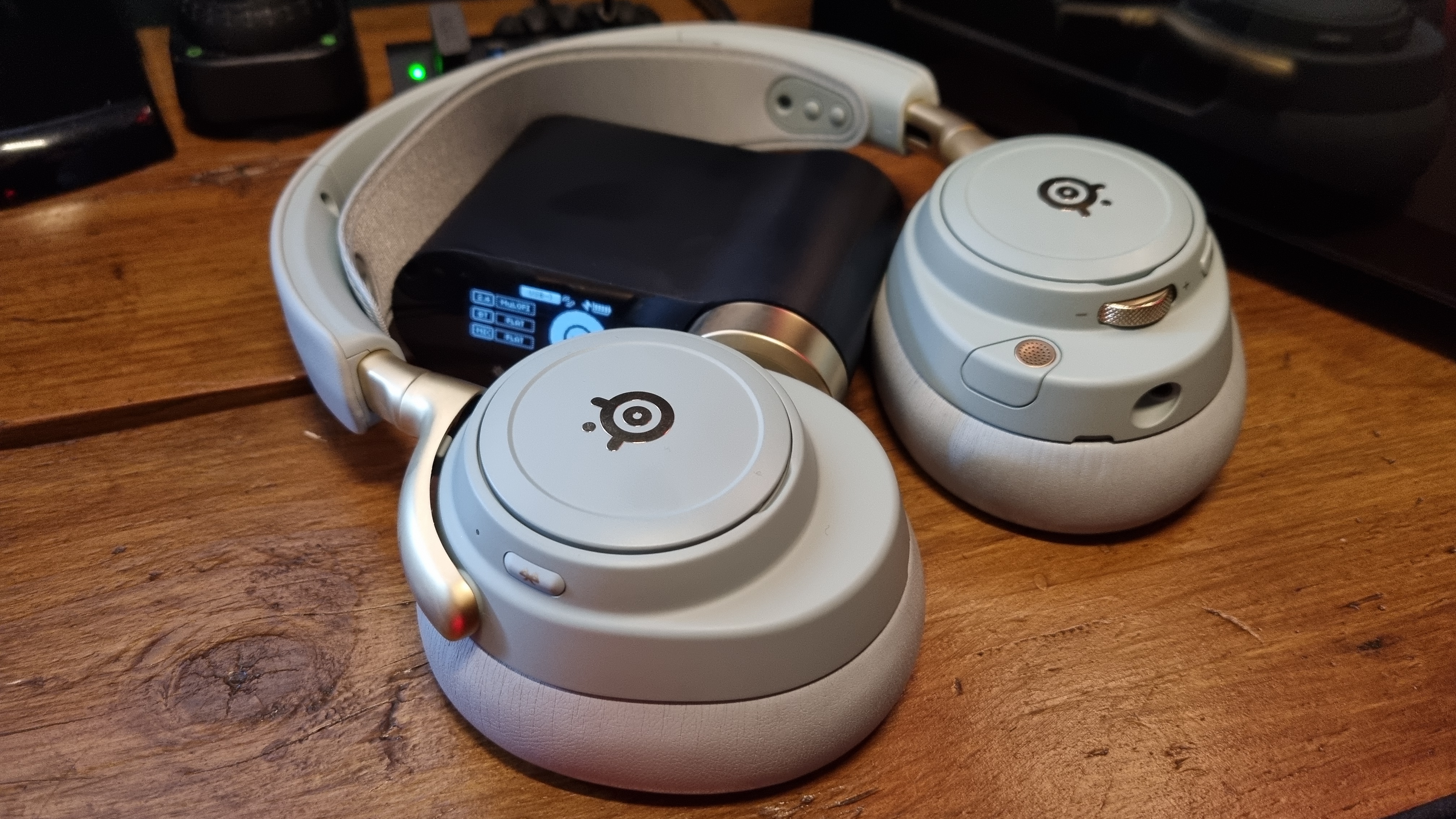Forspoken's PC port is another fine Square Enix mess
Maintaining those PC quality standards.

Keep up to date with the most important stories and the best deals, as picked by the PC Gamer team.
You are now subscribed
Your newsletter sign-up was successful
Want to add more newsletters?

Every Friday
GamesRadar+
Your weekly update on everything you could ever want to know about the games you already love, games we know you're going to love in the near future, and tales from the communities that surround them.

Every Thursday
GTA 6 O'clock
Our special GTA 6 newsletter, with breaking news, insider info, and rumor analysis from the award-winning GTA 6 O'clock experts.

Every Friday
Knowledge
From the creators of Edge: A weekly videogame industry newsletter with analysis from expert writers, guidance from professionals, and insight into what's on the horizon.

Every Thursday
The Setup
Hardware nerds unite, sign up to our free tech newsletter for a weekly digest of the hottest new tech, the latest gadgets on the test bench, and much more.

Every Wednesday
Switch 2 Spotlight
Sign up to our new Switch 2 newsletter, where we bring you the latest talking points on Nintendo's new console each week, bring you up to date on the news, and recommend what games to play.

Every Saturday
The Watchlist
Subscribe for a weekly digest of the movie and TV news that matters, direct to your inbox. From first-look trailers, interviews, reviews and explainers, we've got you covered.

Once a month
SFX
Get sneak previews, exclusive competitions and details of special events each month!
Square Enix's next big action-RPG Forspoken launched this week, and has done so on PC to an extremely mixed reception. It may just be the January void, but the game has sparked a great deal of discussion about everything from the tone to how the publisher distributed (or didn't) review code to outlets: PC Gamer's review remains a work-in-progress.
But I can tell you one thing: Forspoken has ridiculous system requirements, and the PC version doesn't appear to be justifying them. The Steam reviews for the title are extremely mixed and, while some are just moaning about the talking bracelet (really), many are annoyed by the state the game's launched in. Currently around 55% of the total reviews for the title are negative.
An "unoptimized mess" says Hastur, who's rocking an RTX 4080 and also reckons the visuals have been downgraded from the hype trailers just because of those pesky consoles. They're not the only one to complain about this apparent visual mismatch, it's a theme across multiple reviews: "Inaccurate graphics," says YoutubeMajed, "nothing like the trailer".
Some reviews do get a bit existential about it. "You could tell they even voice acted the cat," says Shiba.gif,."Why would you voice act a cat's meow? If you even look at a moving object it will drop your fps by a large quantity but in a still setting it will be completely fine. I recommend having next year's GPU [because] the 40 series ain't cutting it."
I mean, if this isn't running well on such GPUs then that suggests some pretty fundamental issues. "Literally unplayable on a RTX 3070 on 1440p," wails poor Phoenix, "the textures won't even load since the game uses a [bleep]ton of VRAM to work". Another user simply calls it "stutter city".
"There might be a memory leak," theorises Darth_Vapour. "The longer I play the game the more it frame stutters and eventually it crashes. I run a watercooled 3080 12gb with 64gb ram on an I9 processor, that I built myself. So no, it's not my hardware. So I don't even get to find out what the first major boss is like!"
Certain negative reviews are more about the game's content, obviously a subjective call, but even those who enjoy its characters and world are saying the current state of the game is getting in the way of recommending it: "textures are blurry, massive stuttering in the city and grainy/hazy/blurry models are a huge problem," says OnlyMyGameRules. "I feel like waiting to see if [developer] Luminous can solve performance issues and bring down requirements before buying is the right decision, at least on PC."
Keep up to date with the most important stories and the best deals, as picked by the PC Gamer team.
That user also says they stopped playing after a particularly annoying crash bug, and crashes do appear to be happening across the board. Poor old Kali here had 13 crashes in one hour
And it does feel extraordinary that a publisher the size of Square Enix is launching a title like this, at a premium price point, in such a bad state on PC. Let's not forget that some of these negative reviews may come across as being a little mean, but the writers have paid $70 of their own money for the privilege ("Note to self", writes Io, presumably not the Hitman developer, "don't buy Square Enix games from now on.")
Thing is, this is becoming expected from this publisher. Speculation about its allocation of review code for Forspoken was about the game's quality or otherwise, but it may well be that it was less about what the game is than the state it's had to launch in: and as several high-profile examples have shown, it can be incredibly hard to recover from that bad first impression, especially on a platform where users can get a refund within the first couple of hours.
Or as one Steam user puts it, "I like speedrunning," writes SchfiftyFive, "and my favorite category of this game is refund."
The overall reception to the game, outside of the performance issues, is decidedly mixed. There are definitely positive reactions in amongst the reviews, and some like the weirder direction the publisher has taken with this one (outside of any performance issues). Sadly, though, a lot others think that, once you get past the discourse, it's just pretty average.

Rich is a games journalist with 15 years' experience, beginning his career on Edge magazine before working for a wide range of outlets, including Ars Technica, Eurogamer, GamesRadar+, Gamespot, the Guardian, IGN, the New Statesman, Polygon, and Vice. He was the editor of Kotaku UK, the UK arm of Kotaku, for three years before joining PC Gamer. He is the author of a Brief History of Video Games, a full history of the medium, which the Midwest Book Review described as "[a] must-read for serious minded game historians and curious video game connoisseurs alike."

